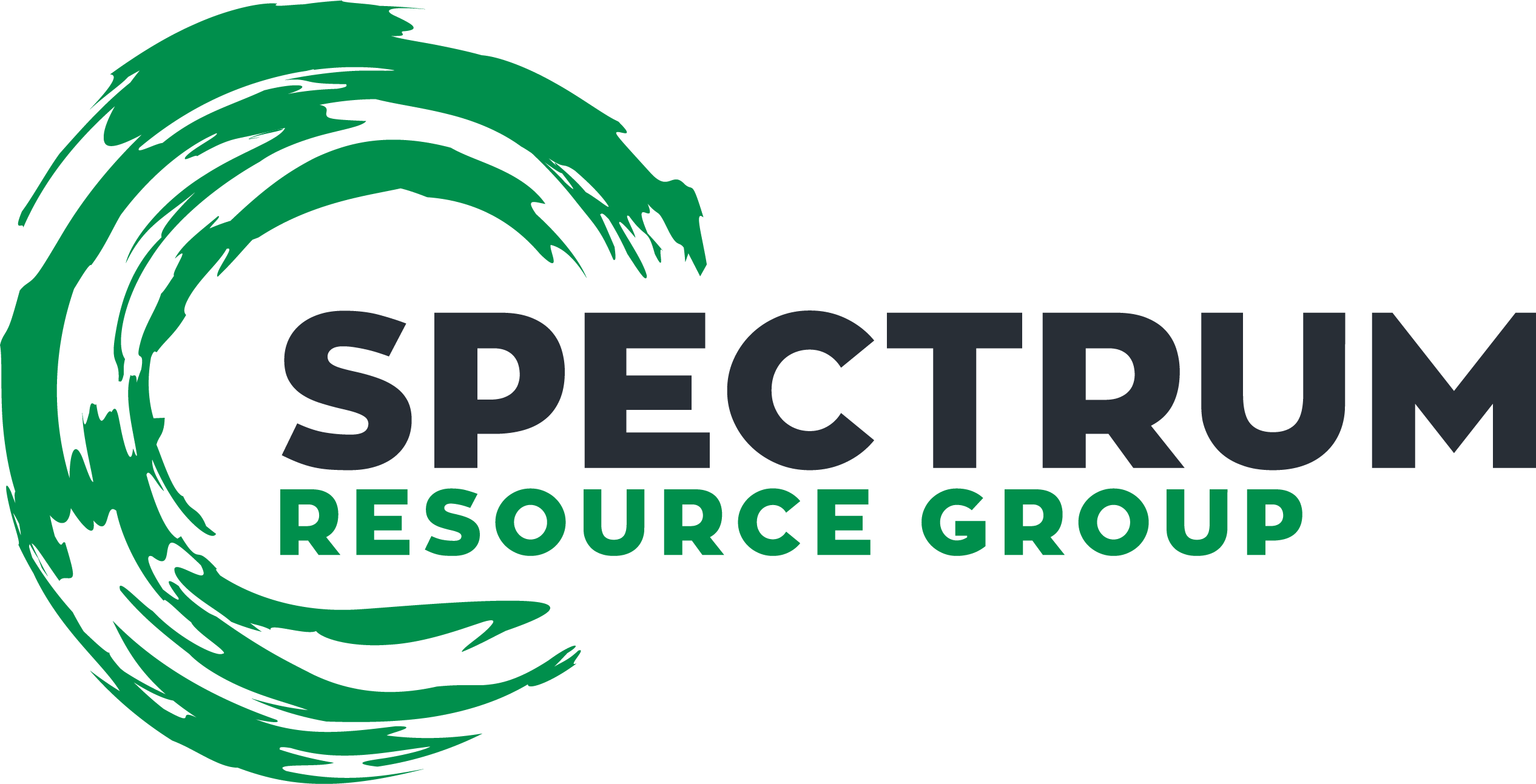CONFLICT MANAGEMENT
NEWSLETTER
 Conflict is a reality of any job site, but it does not have to be as negative as our minds tend to go. When we allow a shift in our own perspective on how we view conflict and therefore manage it, it can afford us great personal and professional growth as we navigate different situations. As a supervisor with Spectrum Resource Group, I understand firsthand the challenges many of us in leadership have with providing guidance or course correction to personnel on our team, especially when the predicted aftermath may result in conflict. By becoming better at managing conflict within our teams, we can decrease time lost, increase morale and build a basis for trust and loyalty, serving the company and the individuals working so hard to make Spectrum successful. Often, our own personal fears, lack of confidence, previous experiences or expected outcomes concerning the potential for conflict can be the driver of nervousness regarding a negative situation. This could be prevented by understanding how we process information, where our own bias naturally occurs, and by putting aside reactionary emotional responses.
Conflict is a reality of any job site, but it does not have to be as negative as our minds tend to go. When we allow a shift in our own perspective on how we view conflict and therefore manage it, it can afford us great personal and professional growth as we navigate different situations. As a supervisor with Spectrum Resource Group, I understand firsthand the challenges many of us in leadership have with providing guidance or course correction to personnel on our team, especially when the predicted aftermath may result in conflict. By becoming better at managing conflict within our teams, we can decrease time lost, increase morale and build a basis for trust and loyalty, serving the company and the individuals working so hard to make Spectrum successful. Often, our own personal fears, lack of confidence, previous experiences or expected outcomes concerning the potential for conflict can be the driver of nervousness regarding a negative situation. This could be prevented by understanding how we process information, where our own bias naturally occurs, and by putting aside reactionary emotional responses.
Humans experience a world of information daily. To categorize the five senses, there is a clever system that arranges information into “webs” within the connections in our brain. Each of these interconnected pathways allows us to make rapid decisions and react to our environment based on our personal historical knowledge. Normally, this system is excellent and allows us to navigate our world proficiently. However, there is a downfall in that it creates a personal bias in accordance with what we have experienced. This can lead to conflict when we use interpersonal skills in situations that trigger our bias. It is called the “Fundamental Attribution Error.” This is your tendency to attribute one’s actions to their personality or character. Managing reactionary personal bias with emotional intelligence, self-awareness and shifting perspective is the key to conflict management. Mentoring our up-in-comers with the skills and tools they need to navigate turbulence within their teams allows for streamlined communication that is both transparent and effective. This in turn leads to higher retention rates of our most valuable assets, the people we have invested in.
 We display our internalized predisposition in subtle ways. It can be defensive or aggressive body/facial language, tone of voice, or an unwillingness to actively listen to the other person. By falsely giving a person or scenario negative attributes and subconsciously acting on them, we set out to prove our own belief of a negative outcome. The early warning system that precipitates all of this is often a feeling of being upset or angry. This is an opportunity to shift perspective and employ emotional intelligence by pausing and actively investigating these adverse internal sentiments and recognizing our own bias.
We display our internalized predisposition in subtle ways. It can be defensive or aggressive body/facial language, tone of voice, or an unwillingness to actively listen to the other person. By falsely giving a person or scenario negative attributes and subconsciously acting on them, we set out to prove our own belief of a negative outcome. The early warning system that precipitates all of this is often a feeling of being upset or angry. This is an opportunity to shift perspective and employ emotional intelligence by pausing and actively investigating these adverse internal sentiments and recognizing our own bias.
My personal struggle with conflict in the workplace has often been precluded by my own actions and an unflattering perspective that others have had of me. While often inaccurate, it has been understandable. I did not yet have the tools and approach that I now possess. It has taken a lot of self-reflection, hard work and understanding of different ways of engaging my team to create a low-conflict work environment.
When we have undesirable emotions attached to any interaction, this is a very clear warning sign to STOP and ASSESS. Even in a moment of conflict with a colleague, it is okay to take a deep breath, request a moment, or walk away if you need to. I find imagining my physical self mentally taking a step back and removing emotional factors from the situation helpful to resolve where the issue is stemming from. It can be shocking the first few times you do this; our personal bias can be very deeply rooted, and we can feel very strong associations that may not be relevant to the current conflict. Actively managing our conflict can rewire the information webs in our brains, and lead to opportunities for growth. Recognizing our bias and shifting our perspective through logic-minded practice can allow us to navigate scenarios that may have become negative. This promotes motivation, trust, loyalty, and personal growth when done correctly.
Understanding how we process information and actively managing our perspective while recognizing our own personal bias is a key to being a good leader. If we actively engage in taking a pause and assessing a situation, we will inspire our team. Conflict is an opportunity to grow the trust between us and our team.
By: Jennifer Davy A.S., BSc. (Hons.), Supervisor
